Science

Vision
Every pupil is able to apply scientific knowledge and skills to appreciate and care for the natural world.
Approach
SNGS Science curriculum deploys the inquiry approach to provide pupil-centric learning experiences (i) to nurture our pupils to become lifelong learners, and (ii) to maintain a sense of wonder about the world around them. The department hopes to foster science-related attitudes, skills and knowledge pupils need to develop inquiry, problem-solving, and decision-making abilities. These skills help them to acquire new knowledge and solve problems in a creative manner, so that they may improve the quality of their own lives and the lives of others.
Our Signature Programmes
STEM-based Applied Learning Programme (ALP) - Environmental Science and Sustainability
The ALP is designed with the following objectives:
- To nurture and develop students who will care deeply for the environment and are change agents in contributing to environmental sustainability.
- To develop 21st century competencies
One of the highlights of STEM ALP is the Makerspace@P3sngs and Makerspace@P4sngs. These programmes are developed and implemented for pupils to apply the simplified Design Thinking process to bring their ideas to life. Pupils learn to Ask relevant questions to understand a given problem, Brainstorm on various solutions to solve the problem, Plan the steps needed to take, Create a prototype to test out the solution, and lastly, Improve on the prototype if necessary. As pupils go through this SNGS Thinking Cycle in the tasks set for them, they pick up new skills and are given opportunities to showcase their creativity and aptitude for Science through our school-based programme.
Part of the ALP also involves implementing Visible Thinking Routines to explicitly teach pupils how to think critically and innovatively, and apply these skills to their day-to-day learning. When thinking is visible in classrooms, pupils are in a position to be more metacognitive, to think about their own thinking. It becomes clear that lessons are not about memorising content but exploring ideas.
Visible Thinking Routines in the Science curriculum aim to deepen pupils’ comprehension. We have divided selected “thinking routines” into three categories:
- Routines for Introducing and Exploring Ideas
- Routines for Synthesising and Organising Ideas
- Routines for Digging Deeper into Ideas
By categorising these thinking routines, students can quickly learn to apply to different context on a daily basis.
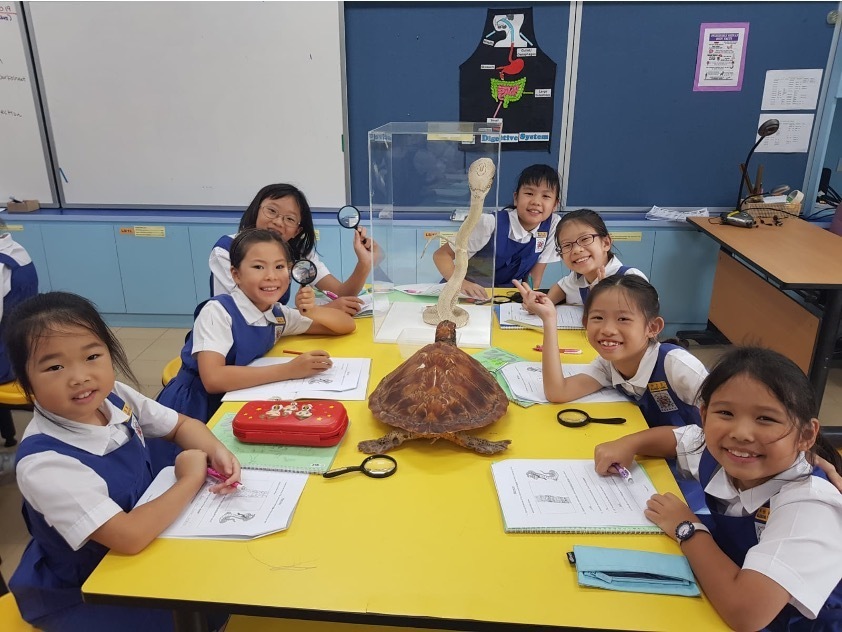
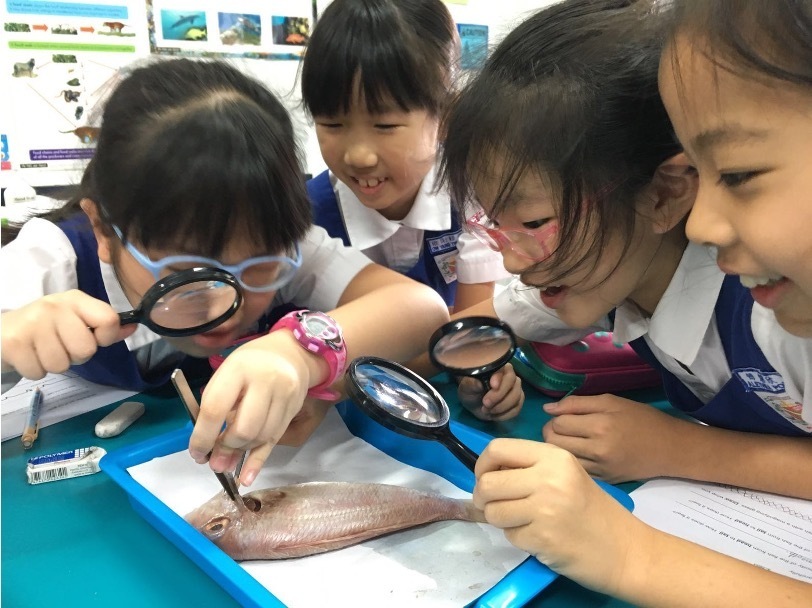
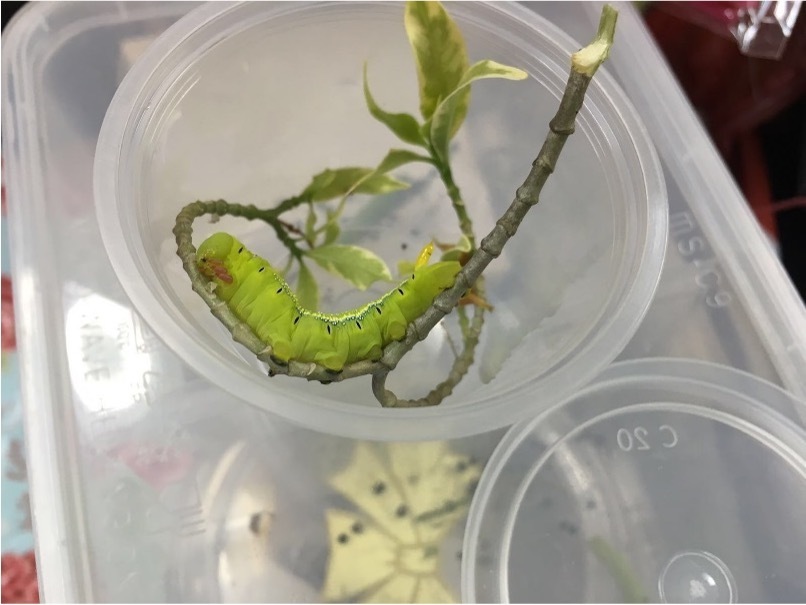
WOW- Week of Wonder
At SNGS, we celebrate Week of Wonder with a bang! Pupils are born with a sense of wonder and passion to understand the world around them. During lessons, pupils instinctively ask questions, observe, and try out solutions - all important parts of thinking scientifically. Pupils are taught to wonder, discover and explore through play and making scientific discoveries. Learning Science through discovery and play help pupils in the following ways:
- It can foster a lifelong love of science.
- It gives a basic grounding in scientific concepts and scientific thinking.
- It supports the development of other skills and attributes.
- Science allows young children to develop life skills.
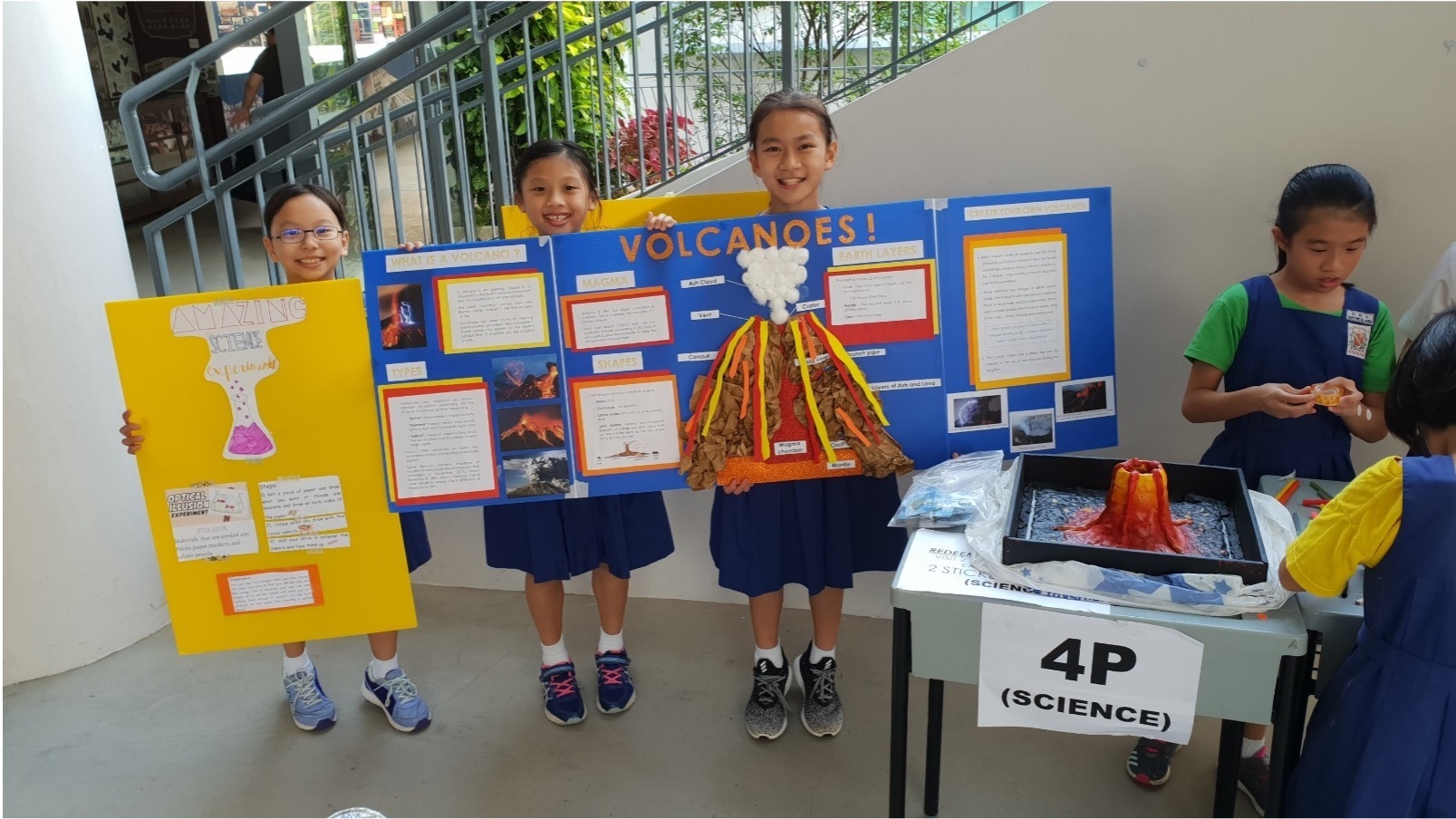
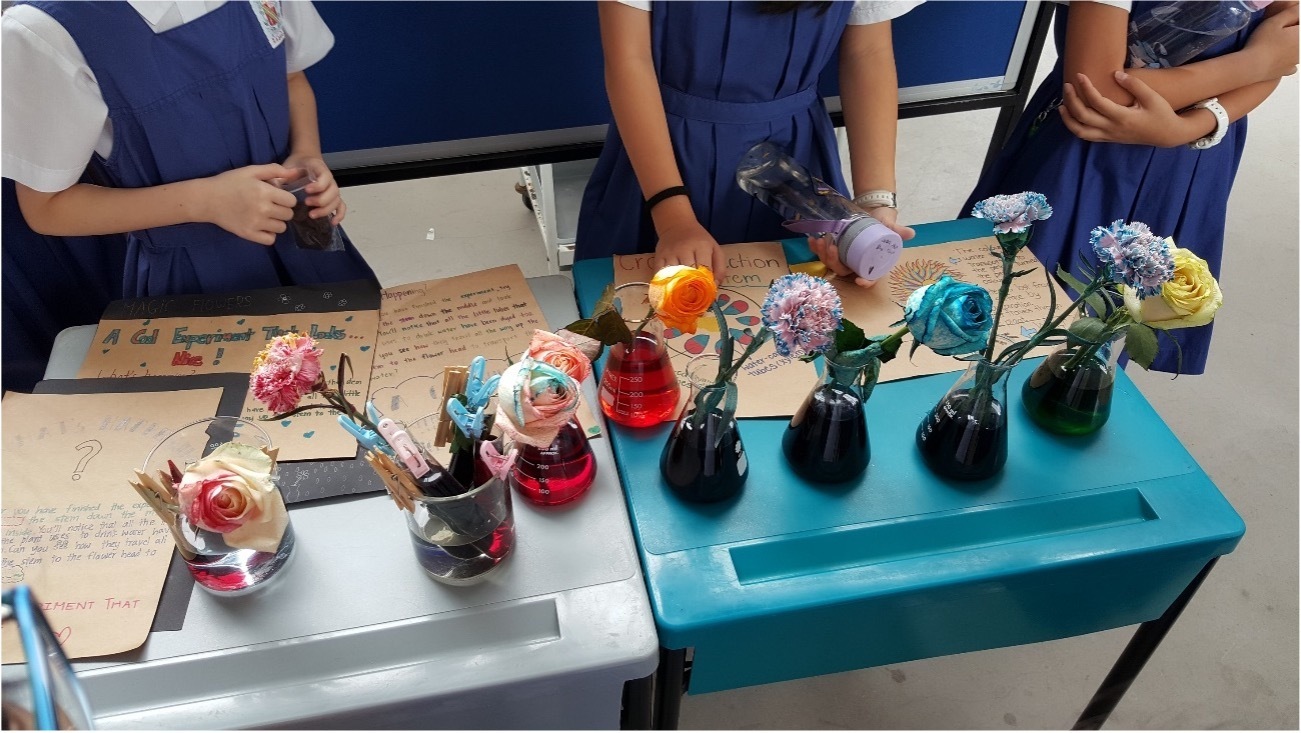
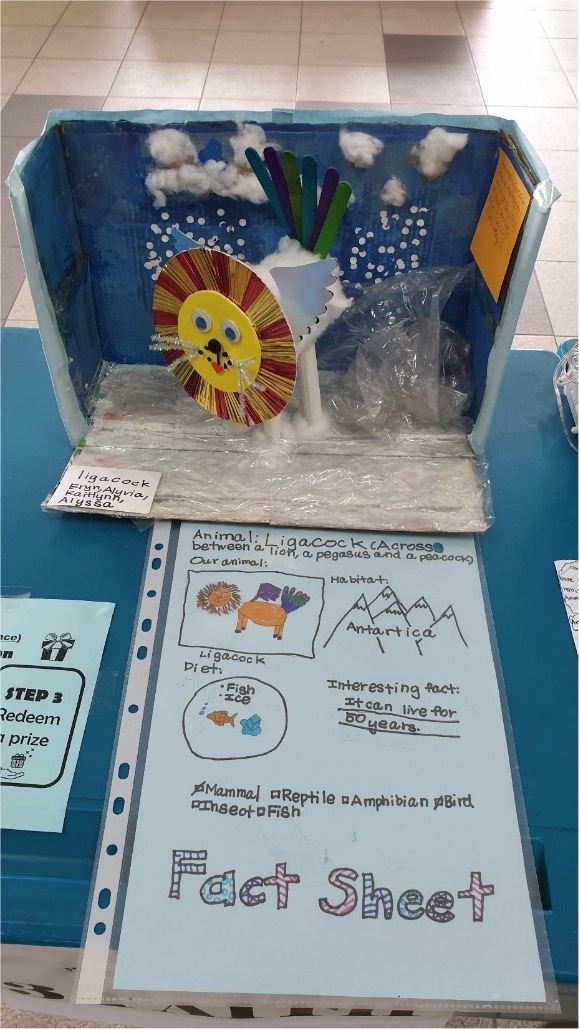
Inquiry-based Learning using SPARKLE Science Kits
Developed by the Ministry of Education (MOE) and Science Centre Singapore, the kits encourage pupils to explore and test their Science ideas through lots of “hands-on, minds-on” activities accompanied with questions and discussion.
The use of SPARKLE Science Kits in the Science classroom changes teacher and pupil roles. It alters the learning environment by moving instructions away from didactic, teacher-centered forms to more hands-on, pupil-centred forms. These kits serve as effective classroom tools to support hands-on curriculum supplements. The main objective is to engage all pupils in active, meaningful learning where learning is associated with hands-on instructional strategies, to encourage thinking and cultivate joy in learning.

